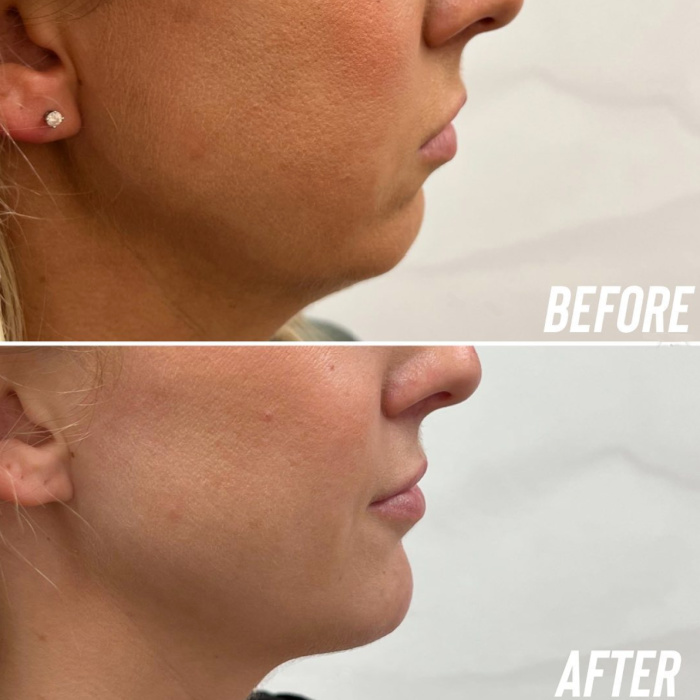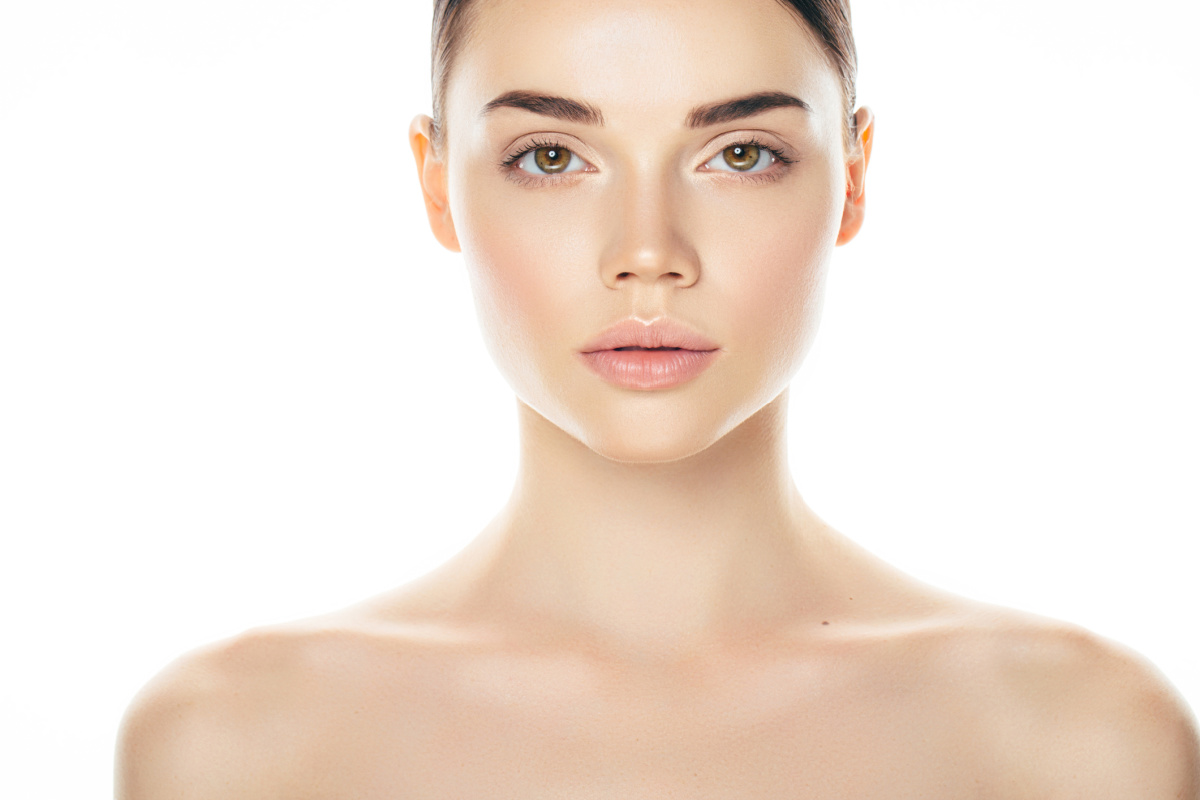From Nefertiti’s stunning profile to the Parthenon of Rome, beauty has historically been recognized in harmonious proportionality. Some people have taken this idea a step further, suggesting that an ancient mathematical equation called the Golden Ratio can be used to assess a person’s attractiveness.
However, recent scientific research has sparked considerable debate about whether the Golden Ratio truly governs facial beauty. While some top cosmetic surgeons swear by its principles for creating balanced features, a growing body of 2024 research suggests the connection may be more myth than reality.
In this comprehensive guide, we’re taking a thorough look at the Golden Ratio (also referred to as the Divine Proportion), examining both its supporters and critics, and exploring whether it should be used as a benchmark for facial beauty in modern cosmetic surgery.
What is the Golden Ratio?
The Golden Ratio is 1: 1.618, and the full equation states that when a line is divided into two parts in a ratio of 1: 1.618, it creates the ideal proportion. The Golden Ratio has its roots in nature, from plants to snail shells, and has been used as a guide for architects and artists across the world for centuries. Because the Golden Ratio is incorporated into so many aspects of our society, some experts have suggested that humans subconsciously view one another with this standard in mind—which leads us to our next question, “How is the Golden Ratio applied to facial aesthetics?”
How is the Golden Ratio applied to facial aesthetics?
Skilled cosmetic surgeons naturally have an artistic eye, but some of them also incorporate the Golden Ratio into their work, using it as a tool to explain to patients who are dissatisfied with their facial proportions how they may be brought back into balance. Some of the proportions they may discuss, as outlined by the Golden Ratio, include:
- A visually balanced face is approximately 1.618 times longer than it is wide
- The distance from the top of the nose to the center of the lips should be around 1.618 times the distance from the center of the lips to the chin
- The hairline to the upper eyelid distance is classically 1.618 times the length of the top of the upper eyebrow to the lower eyelid
- The model ratio of volume in the lips is 1:1.6 (the lower lip having slightly more volume than the upper lip)
- The length of an ear should be comparable to the length the nose
- The width of an eye should be similar to the distance between the eyes
Test Your Own Golden Ratio: A Step-by-Step Guide
Curious about how your face measures against the Golden Ratio? Here’s how to conduct your own assessment at home using just a ruler and calculator:
Basic Face Ratio Test
- Measure your face length: From hairline to chin
- Measure your face width: At the widest point (usually cheekbones)
- Calculate the ratio: Divide length by width
- Ideal result: Approximately 1.618
The Three-Segment Rule
For ideal facial proportions, measure these three sections. They should be roughly equal:
- Upper Third: Hairline to eyebrow line
- Middle Third: Eyebrow line to base of nose
- Lower Third: Base of nose to bottom of chin
Additional Golden Ratio Measurements
- Eye spacing: Width of one eye should equal the distance between your eyes
- Nose-to-ear ratio: Your ear length should match your nose length
- Lip proportions: Lower lip should be 1.618 times fuller than upper lip
Remember, these are guidelines, not rules. Many of the world’s most beautiful faces don’t perfectly match these ratios, and that’s completely normal! Use this as a fun exercise rather than a strict beauty standard.
The Golden Ratio serves as a guide, not an ideal
Again, the Golden Ratio is just one of many ways to measure aesthetic beauty. Rather than serving as a “standard” of beauty, a sensitive cosmetic surgeon will use it as a reference point to educate patients and help them understand how the relationship between facial features contributes to a harmonious appearance.
The Golden Ratio is used by cosmetic surgeons to restore balance and proportionality, not as a measurement of facial beauty.
It’s important to note that the Golden Ratio is not a rule; plenty of the most strikingly beautiful people, places, and things lie outside of this measurement. Instead, we can use it as a general reminder that proportion between features affects our perceptions, and humans find visual balance satisfying.
Thus, true aesthetic surgeons will not consider one facial feature in isolation, but rather assess the effects that altering any single feature will have on one’s overall appearance. He or she can artfully use surgical or non-surgical treatments to subtly increase or decrease the apparent distance between certain facial features, or to add volume and projection where needed, to increase overall facial harmony. Below are a few examples of how cosmetic enhancements are able to improve facial proportions:
Treating volume loss and sagging can improve upper and lower face proportions.
- A facelift can reverse the aging process 10+ years by repositioning facial tissues and underlying musculature to a more youthful position.
- Filler injections can “fill” hollows in the temples & under-eyes, widen & elongate the chin, improve the shape of the nose, and augment the lips. For women, well-placed filler injections can also add lift & volume to the cheekbones and slim the jawline; for men, they can create the appearance of a wide, chiseled jawline.

Obsessed with this patient’s final results! We achieved this facial harmony in two sessions with 4 syringes of filler in her lower face for shadowing and in her chin for projection.
Treating the neck can bring balance and definition to the profile.
- FaceTite uses radiofrequency energy to eliminate stubborn fat deposits on the neck & below the chin and tighten loose skin in the neck & lower face. FaceTite can also be combined with liposuction to reduce larger amounts of neck fat.
- Neck lift surgery tightens the platysma muscles and removes excess skin to create the ideal angle between the neck and jawline and eliminates a double chin.
Treating musculature with neurotoxin can bring the face into balance quickly and without surgery.
- Botox® can help raise the eyebrows, decreasing the space between the brow and the hairline. It can also add height to the upper lip, a procedure called the Botox lip flip.
Skin quality also influences facial beauty
Proportion isn’t everything: other factors, such as skin quality, can also greatly influence one’s appearance. A clear, glowing complexion can go a long way in helping you radiate beauty and confidence. On the other hand, sunken cheeks, hollowed eyes, and deep lines & folds can detract from one’s beauty, even if proportions meet the Golden Ratio. The following medical spa treatments can improve the skin without surgery:
- Custom facials & chemical peels use naturally-derived acids, antioxidants, and moisturizers to fade acne scars, sun damage, hyperpigmentation, and fine lines & wrinkles.
- Microneedling induces “micro-wounds” in the dermis and epidermis, stimulating collagen and elastin production for thicker, more resilient skin.
- Laser skin resurfacing removes damaged outer layers of skin and encourages new skin cell growth to reveal a healthier, smoother complexion.
The Golden Ratio Debate: What Current Science Says
While the Golden Ratio has been a cornerstone of aesthetic theory for decades, recent scientific research presents a more nuanced picture:
The Case Against Universal Application
A comprehensive 2024 study concluded that “there is no convincing evidence that the golden ratio is linked to idealized human proportions or facial beauty.” The research points out several key issues:
- Historical inaccuracy: Many claims about ancient Greek and Renaissance use of the Golden Ratio appear to be modern myths
- Cultural variation: Beauty standards vary significantly across different cultures and ethnicities
- Individual uniqueness: Many universally recognized beautiful faces don’t conform to Golden Ratio measurements
The Case for Proportional Harmony
However, other research suggests that while the exact 1.618 ratio may not be universal, proportional relationships do matter for perceived attractiveness:
- Studies show people generally prefer faces with balanced proportions
- Symmetry and harmony remain important factors in facial beauty
- The Golden Ratio may serve as a useful guideline rather than a strict rule
The Balanced Approach
Modern cosmetic surgeons increasingly view the Golden Ratio as one tool among many rather than the ultimate beauty standard. The most successful outcomes often consider:
- Individual facial anatomy and unique features
- Cultural and personal beauty preferences
- Overall facial harmony rather than strict mathematical ratios
- The patient’s specific aesthetic goals
Takeaway: Beauty is in the eye of the beholder
While proportionality and symmetry undoubtedly contribute to facial aesthetics, attractiveness is ultimately subjective. Think about the people in your life you are most attracted to: it’s likely how they make you feel inside that matters. We see beauty in every face and encourage you to treasure what is beautiful to you!
While proportionality and symmetry undoubtedly contribute to facial aesthetics, attractiveness is ultimately subjective.
Balancing the Golden Ratio with your uniqueness
At Maningas Cosmetic Surgery, we take our motto, Enhancing the already beautiful you™, to heart. During your personal consultation, Dr. Maningas and our licensed aestheticians will consider your overall symmetry and proportionality while also taking into account your unique facial anatomy and aesthetic goals. This allows them to customize your facial procedure(s) while avoiding a “one-size-fits-all” approach. They will also encourage you to view before and after photos of patients who look similar to you so that you can get a sense of what your results may look like.
Trust your beauty to the experts at Maningas Cosmetic Surgery
When it comes to your beauty, don’t settle for “satisfactory” results. Our triple-board certified cosmetic surgeon Dr. Talon Maningas and licensed aestheticians are dedicated to helping patients in Joplin, MO and the four-state area look their best with cosmetic surgery, injectable Botox and dermal fillers, and non-surgical skin treatments like microneedling. Find out why our patients leave us reviews on RealSelf like, “My results are amazing and so much better than I could have dreamed!”—schedule your consultation online or call (417) 437-0303.



